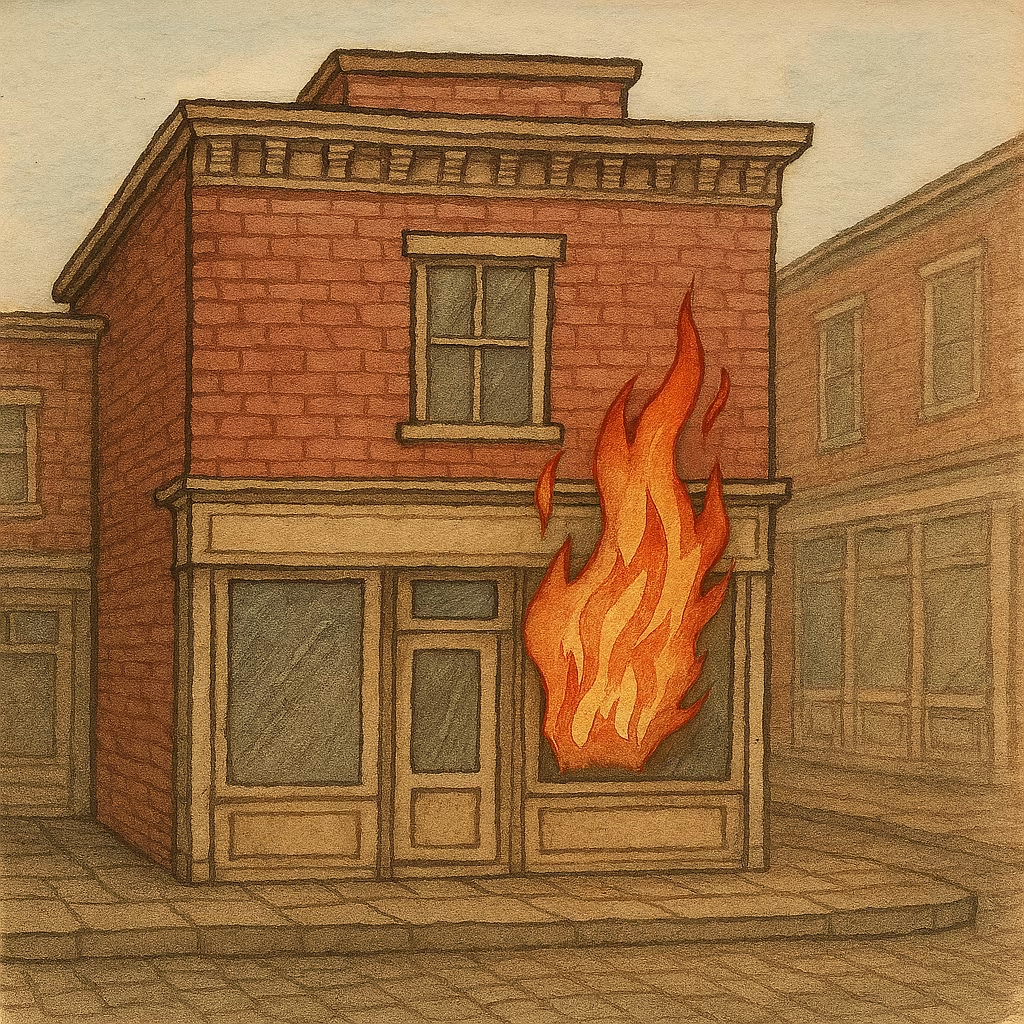Insurance is meant to pay for unexpected unforeseen catastrophic losses.
That’s the main point of this blog.
OK, great, Eli, thanks, but why are you telling me this?
The reason is that this fundamental truth about insurance reframes insurance in a way that allows people to have a better understanding of why insurance companies do what they do.
If you’ve been non-renewed recently because of a claim (or multiple claims), and are disillusioned about why, this blog is for you.
I will explain now. If a policyholder has a small claim, let’s say a small fire loss of $5,000 – which actually pays only $3,500 after the deductible of $1500 is deducted from the payout – and then six months later has another identical claim, that policyholder may find himself getting a notice of non-renewal from his insurance company.
“I had two small fire losses, which cost my insurance company only $7,000 in payouts while I had to pay $3,000 out of my own pocket,” the policyholder might be thinking. “My policy premium is $20,000. They’re still making money off me! Yet they’re cancelling me?”
The woeful policyholder may then find himself in a situation where his new insurance company costs about as much as his old policy plus the amount paid out on the claims. After only these two losses, the only new insurance company willing to take on the risk may now cost $27,000.
How can this be? Refer to the fundamental truth above. Insurance is meant to pay for unexpected unforeseen catastrophic losses. If you have two losses of the same kind, when is the next claim going to happen?
Insurance companies will now see you as either low morale or unlucky. Low morale means there’s something about you that invites claims. Maybe you don’t practice good safety practices. Maybe you’re careless. Maybe they think you see them as a maintenance plan, not something meant to only handle unexpected unforeseen catastrophic losses.
Maybe it’s not your fault. You’re in an old building, you’re in a fire zone, you’re in a part of town where bad things happen. There was a riot nearby and of course, you didn’t start it or condone it. None of these were your fault, but they still affected you and your business.
Insurance companies sound cutthroat and mean, despite their friendly nice-guy sounding slogans. It’s true, I get it. I don’t justify it; I just explain it. These are the facts. If your insurance company thinks you’re at a greater risk than a normal person or business is – especially using your own history of frequent claims as evidence – you might find yourself on the receiving end of non-renewal notice.
There was an old saying among insurance agents back 20+ years ago when I first got started in the industry. It was “if you’re going to file a claim, make it a big one.” This is a clever way of saying don’t file small claims. Insurance companies aren’t in the business of losing money, even though they promise to pay out infinitely more dollars than they take in. They depend on accidents not happening frequently, so if you start looking like a frequent-accident type of person or business they will – without hesitation – send you a Notice of Cancellation when your policy expires.
Lastly, notice I didn’t say “cancel” notice. I said “non-renewal” notice. There is an important distinction that I want to clarify in order to dispel the rumors about insurance companies “cancelling” their policyholders after a loss. It doesn’t work that way. The laws in every state, or at least most states (well, at least in California where I do business and where most of my audience would be) dictate that an insurance company can’t drop you midterm because of a claim. They can only non-renew your policy at expiration and they must give you at least 30 days to find a new insurance company. So if your policy expires a day after the loss, they must give you an extension of at least 30 days before terminating your coverage. Yes, there are reasons when an insurance company can cancel you midterm, like fraud or misrepresentation, but not because of a covered loss.
One more thing. If you’re finding yourself on the receiving end of a Notice of Cancellation, whether because of claims, wildfire hazard, or some other hard-to-understand reason, give us a call because we can probably help.
It couldn’t be simpler to find out if we can help. Here’s how:
- Request a Quote. Just click HERE
- Have a conversation. We’ll learn about you, gathering all the information our providers need to offer a quote.
- We’ll present you with a quote. Once we’ve received your offer, we’ll reach out to you and discuss this potential solution.







